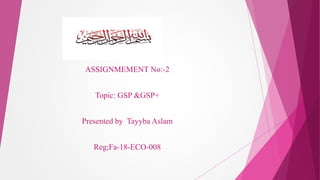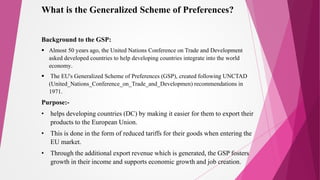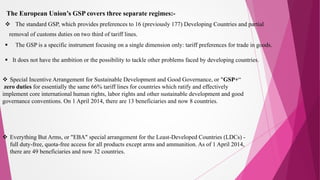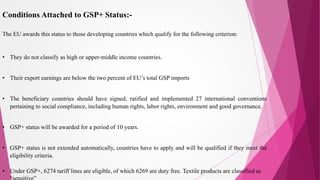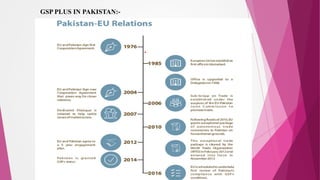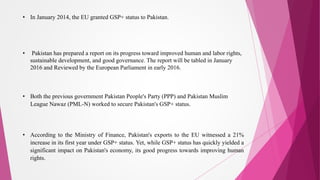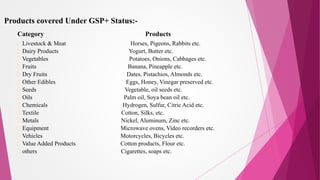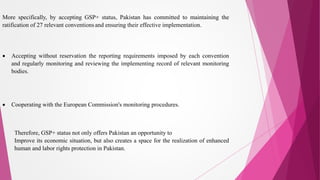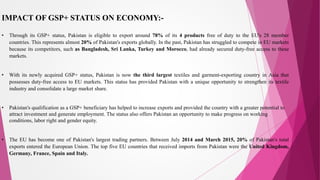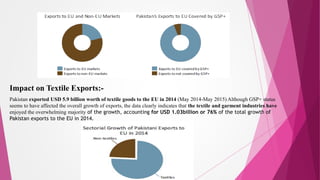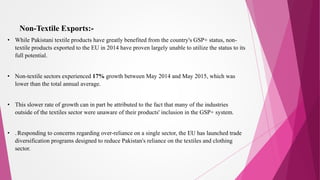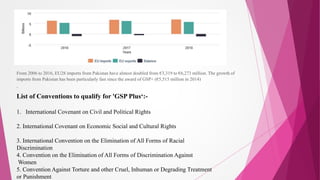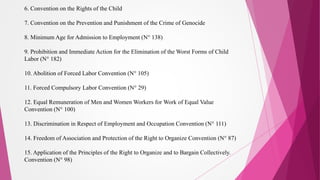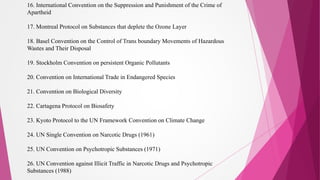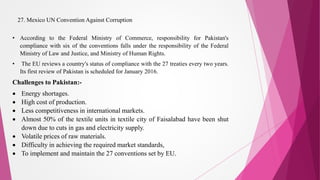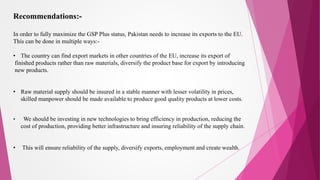The document discusses Pakistan's Generalized Scheme of Preferences Plus (GSP+) status with the European Union. Some key points:
1. GSP+ provides duty-free access to the EU market for certain goods from developing countries that ratify and implement 27 international conventions related to human and labor rights.
2. Pakistan was granted GSP+ status in 2014, significantly increasing its textile exports to the EU. However, non-textile exports saw less growth.
3. Maintaining GSP+ involves regular reporting on and effective implementation of the 27 conventions. Pakistan's compliance will be reviewed by the EU in early 2016.
4. While benefiting the economy, GSP+ also
